MASTER'S PROGRAM IN CIVIL ENGINEERING
General information about the training program
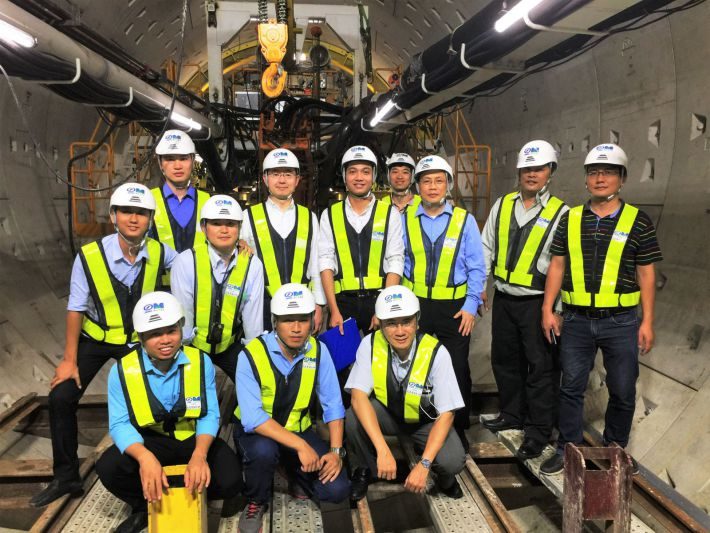
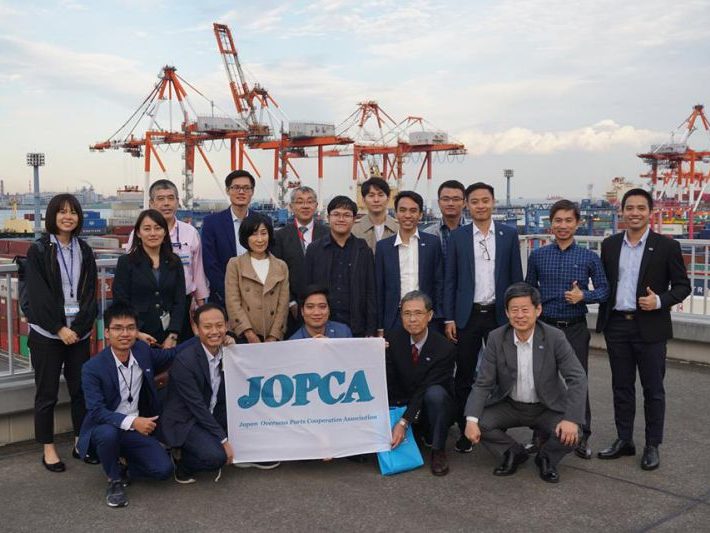
Training objectives
* General objectives
The program aims to equip students with advanced knowledge and modern techniques in designing, construction, planning, operation, management, maintenance, and preservation of infrastructure and modern transportation systems
Graduates of the program meet the demand for high-quality human resources in construction corporations and enterprises both domestically and internationally. They can also work in planning and construction management in ministries and companies, conduct scientific research, teach at research institutes and universities, or pursue doctoral studies at institutions worldwide.
* Specific training objectives (Program Education Objectives – PEOs)
The program provides students with the following knowledge and skills:
Knowledge
- Basic and advanced knowledge in Civil Engineering, including structural and foundation analysis and design, as well as the construction of infrastructure projects.
- Advanced knowledge in regional and urban planning, construction management, project management, maintenance, and quality assessment of infrastructure projects.
- A solid foundation in advanced materials, enabling students to research and apply new materials and technologies in construction projects.
Skills
- Skills in professional tasks, including the use of professional tools (software, experimental equipment) for designing and constructing civil engineering projects, as well as the ability to develop and create new tools.
- Skills in conducting scientific research and publishing findings in domestic and international journals.
Soft skills in presentation and teamwork.
Autonomy and Responsibility
- A professional attitude and responsibility towards their professional work and the community.
Integrity and objectivity in scientific research.
- Duration: 2 years
- Training mode: Part-time formal education
- Training language: The training program is taught in English except for 2 following courses: (i) Philosophy (in Vietnamese for Vietnamese students and English for foreign students); (ii) Japanese (in Vietnamese and Japanese). The master thesis is written and defended in English.
-
Name of master degree:
+ Vietnamese: Thạc sĩ chuyên ngành Kỹ thuật Xây dựng
+ English: The Degree of Master in Civil Engineering - Trainng location: My Dinh campus and Hoa Lac campus of VNU Vietnam Japan University
Expected job positions
The graduates from the Master program Civil Engineering can take on the following roles:
- Technical staff or managers in domestic and international organizations and enterprises in the field of Civil Engineering.
- Managers in state agencies related to Civil Engineering, such as those under the Ministry of Construction, the Ministry of Transport, Project Management Boards, Departments of Construction, and Departments of Transport in provinces and cities nationwide.
- Experts in consultancy, supervision, inspection, and evaluation of Civil Engineering projects; investment project planning, urban planning, design, construction, and operation management of civil works.
- Researchers or lecturers at universities, colleges, and vocational schools both domestically and internationally in fields related to Civil Engineering, transportation planning, and construction management.
Program Advantages
- A high-quality program modeled after the University of Tokyo’s curriculum.
- An international environment with approximately 50% Japanese faculty, modern facilities, and advanced laboratories; opportunities to participate in projects with esteemed professors.
- Significant tuition support; full scholarships for outstanding students.
- Full sponsorship for internships in Japan for up to 50% of students.
- Competitive advantage in recruitment and job opportunities at leading organizations and companies in Japan, Vietnam, and globally upon graduation.
- Graduates can pursue doctoral studies at top universities in Japan and worldwide.
Coordinating universities
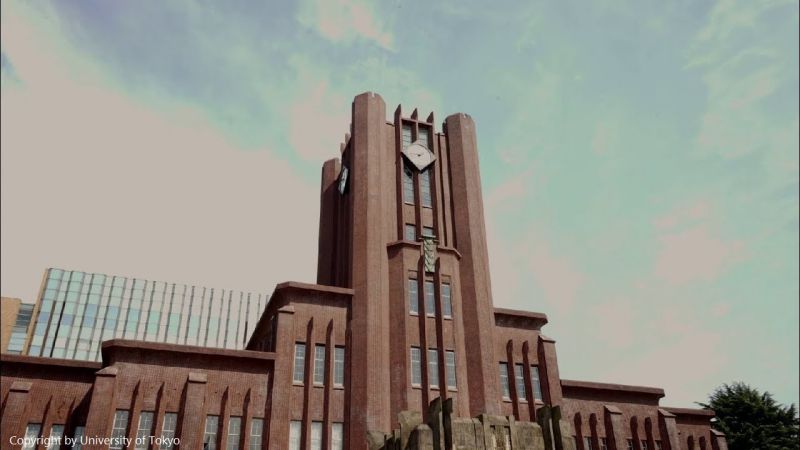
The coordinating university of the Master program in Civil Engineering from Japan is the University of Tokyo (https://www.u-tokyo.ac.jp/en/) This is the most prestigious university in Japan, ranked 29th in the World in 2025 according to The Times Higher Education rankings. Professors from the University of Tokyo directly participate in operating the program.
Besides the University of Tokyo, professors from other universities and institutes, e.g., University of Tsukuba, Osaka University, Takusoku University, actively join teaching and research activities of the program.
Program Message
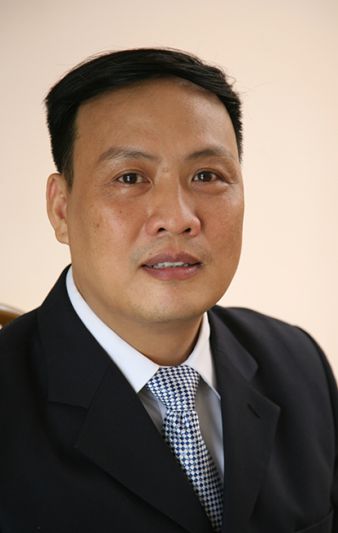
Professor Nguyen Dinh Duc
Program Director
Curriculum Vitae
“Japan is one of the powers with the most advanced and modern technology and techniques in construction and transportation in the world. The Master of Infrastructure Engineering training program is built on the transfer of The training program and experience of the University of Tokyo is one of the world’s most prestigious and leading universities. The content of the curriculum is updated with advanced knowledge and technology from Japan and the world, with a focus on into three areas that are Japan’s strengths: Design, construction, application of modern technology to traffic works, bridges and roads; Planning, management, maintenance and upkeep of infrastructure projects infrastructure towards sustainable development (more than 40% of ODA from Japan is invested in infrastructure and urban development); Applying new construction materials to civil construction. In addition, the program aims to improve Improve students’ practical skills and practical experience through internships in the school’s modern laboratories and a 3-month internship in Japan. Through this, students can improve the quality of their essays. master’s degree as well as meeting the research orientation of the training program.”
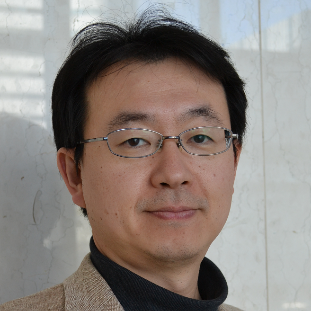
Professor Hironori Kato
Tokyo University
Co-Director
“Japan is one of the powers with the most advanced and modern technology and techniques in construction and transportation in the world. The Master of Infrastructure Engineering training program is built on the transfer of The training program and experience of the University of Tokyo is one of the world’s most prestigious and leading universities. The content of the curriculum is updated with advanced knowledge and technology from Japan and the world, with a focus on into three areas that are Japan’s strengths: Design, construction, application of modern technology to traffic works, bridges and roads; Planning, management, maintenance and upkeep of infrastructure projects infrastructure towards sustainable development (more than 40% of ODA from Japan is invested in infrastructure and urban development); Applying new construction materials to civil construction. In addition, the program aims to improve Improve students’ practical skills and practical experience through internships in the school’s modern laboratories and a 3-month internship in Japan. Through this, students can improve the quality of their essays. master’s degree as well as meeting the research orientation of the training program.”
Program curriculum
Total credits required: 64 credits, including:
- General Knowledge (Compulsory): 8 credits
-
Specialized Knowledge: 29 credits 29 credits
+ • Compulsory: 20 credits
+ Elective: 09 credits/ 61 tín chỉ -
Scientific Research: 27 credits
+ Research Topics and Internship: 12 credits
+ Master’s Thesis: 15 credits
5. GIẢNG VIÊN

Prof. Dr. Nguyen Dinh Duc
Program Director
Mechanics and Materials

Prof. Dr. Kato Hironori
Program Advisor
Traffic and Urban Management
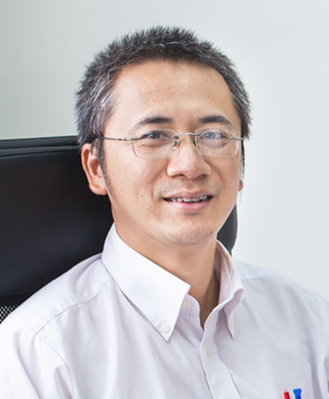
Dr. Phan Le Binh
Traffic and Urban Management
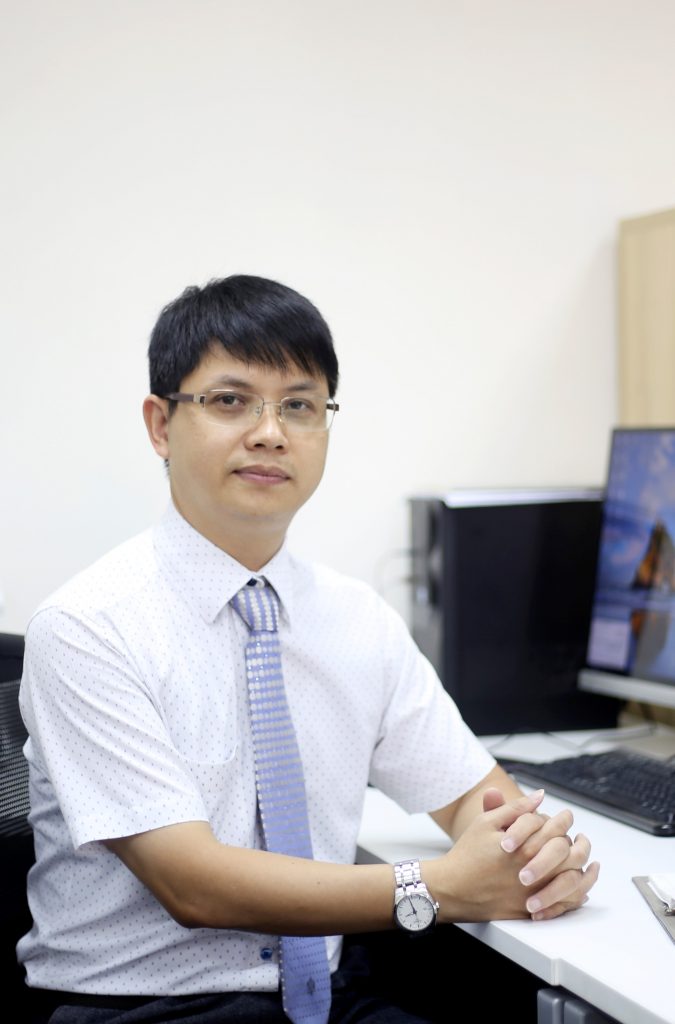
Dr. Nguyen Tien Dung
Foundations and Geotechnics
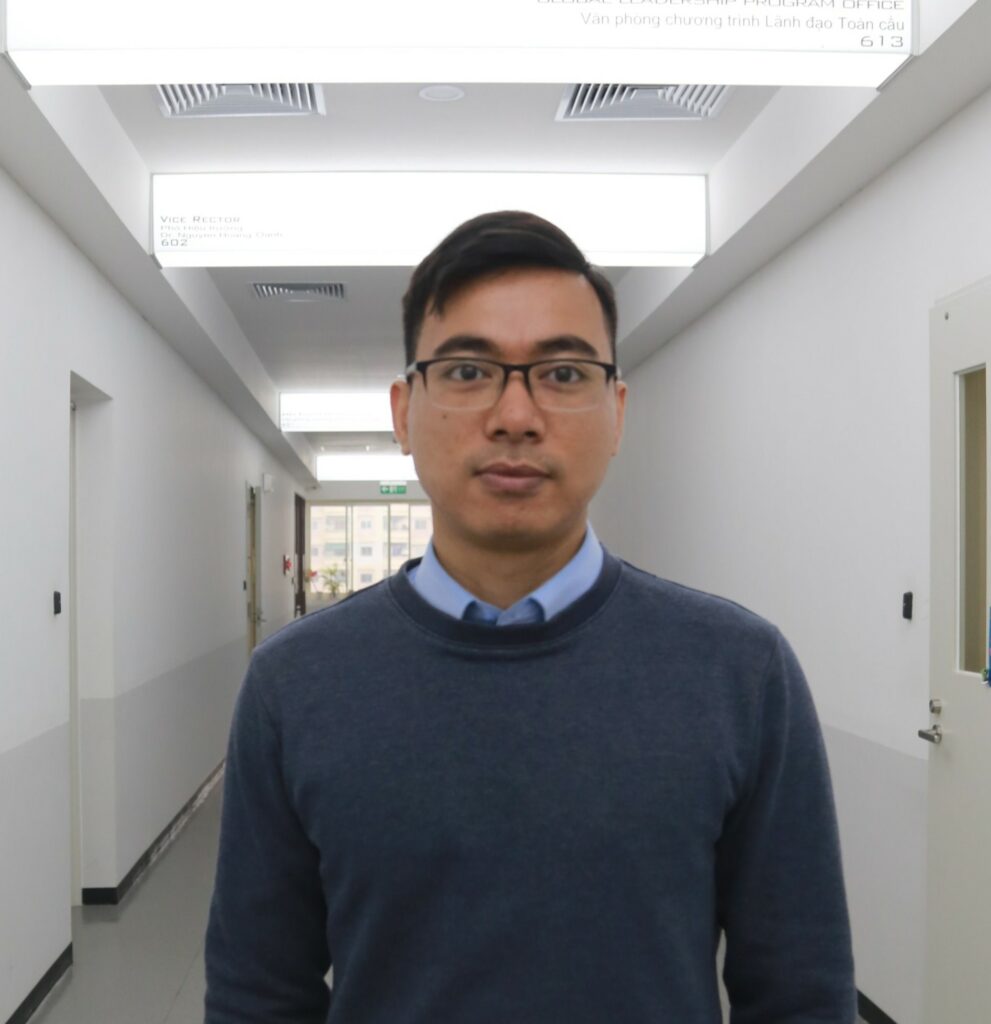
Dr. Nguyen Ngoc Vinh
Structures and Materials
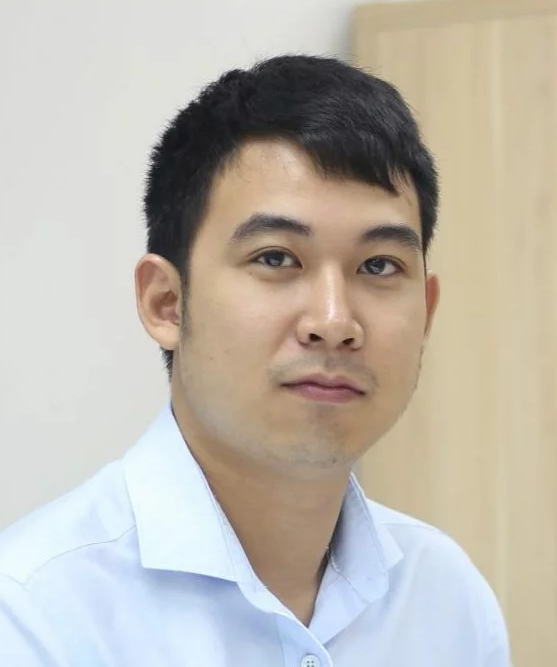
MSc. Bui Hoang Tan
Civil and Industrial Construction
Admission Information
1. Admission methods
- Interviews and review of applications.
Admission information according to the Admission regulations, the Annual graduate admission guidelines of VNU, and the Admission plan of VNU-VJU approved by VNU (if any).
2. Admission requirements
- Degree Requirements
Degree: Bachelor’s or Engineer’s degree in a relevant field; Bachelor’s or Engineer’s degree in a related field with supplementary knowledge required.
Graduation Classification and Work Experience:
- Applicants with a GPA of 2.5 or higher (on a 4.0 scale) can apply immediately upon graduation.
- Applicants with a GPA below 2.5 must have at least 2 years of work experience.
- English Language Proficiency
A certificate equivalent to Level 4 or higher of the 6-level Vietnamese Framework of Reference for Languages, issued by authorized institutions and valid for 2 years from the test date to the application date.
Candidates can use results from the VNU English Test conducted by the VNU University of Languages and International Studies as proof of English proficiency.
Substitution for English Proficiency Certificates:
Candidates must demonstrate English proficiency through one of the following:
- A degree in English Language or English Language Education, or a degree program taught in English.
- A degree issued by VNU-affiliated institutions within 2 years from the application date, provided the applicant met English requirements at graduation as per VNU regulations.
Note:
- Applicants must provide confirmation from their degree-granting institution regarding the language of instruction or seek verification from the appropriate authority for degrees earned abroad.
- Vietnamese candidates must verify degrees through the Quality Control Department of the Ministry of Education and Training. Foreign candidates must provide legalized documents for all submitted degrees and certificates
- Fields of Study (Relevant and Related Fields)
Relevant Fields:
Civil Engineering, Hydraulic Construction, Offshore Construction, Transportation Construction, Infrastructure Engineering, Geotechnical Engineering, Water Resources Engineering, Water Supply and Sewerage Engineering, Construction Economics, Construction Management, Underground Construction Engineering, Special Construction Engineering.
Related Fields:
Architecture, Urban Architecture, Regional and Urban Planning, Urban Management and Construction.
Highly interdisciplinary fields and international programs will be reviewed on a case-by-case basis by the admission committee
- Estimated enrollment quota
- 10 students/batch.
Learning outcome
1. Knowledge Outcomes
1.1. General Knowledge
- PLO1: Apply comprehensive knowledge of law, management, environmental protection, and sustainable development to solve issues in the field of Construction Engineering and broader social issues.
- PLO2: Apply scientific research methodologies to address specific problems in Construction Engineering
1.2. Sector-Specific Knowledge
- PLO3: Apply fundamental sector knowledge as a solid foundation for analyzing, calculating, designing, and maintaining construction works with a sustainable development approach.
1.3 Major/Discipline-Specific Knowledge:
- PLO4: Calculate and design construction works (e.g., bridges, roads, high-rise buildings, underground structures) using acquired specialized knowledge.
- PLO5: Apply infrastructure planning knowledge to develop urban area planning, manage the exploitation, and maintain construction works with a stable and sustainable development approach.
2.2. Skills Outcomes
2.2.1. Professional Skills
- PLO6: Conduct a scientific research project.
- PLO7: Creatively apply scientific and technological advancements to solve specific problems in the field of Construction Engineering.
- PLO8: Propose optimal technical solutions in the design and management of construction works.
2.2.2. Supplementary Skills
- PLO9: Demonstrate skills in information synthesis, report writing, presentation, negotiation, and discussion on specialized topics.
- PLO10: Demonstrate teamwork skills.
- PLO11: Achieve a foreign language proficiency of at least level 4/6 (according to the Vietnamese 6-level foreign language proficiency framework).
2.3. Autonomy and Responsibility Outcomes
- PLO12: Demonstrate responsibility to the community and society; understand and comply with the guidelines, policies, and laws of the Party and the State.
- PLO13: Exhibit appropriate professional ethics and attitudes, along with a professional working style.
- PLO14: Demonstrate honesty and objectivity in scientific research results.
Contact
Program Office
P.505, 5th floor, Vietnam Japan University, Luu Huu Phuoc Street, My Dinh 1 Urban Area, Nam Tu Liem District, Hanoi
Program assistant:
Bùi Thị Hoa
Tel: (+84) 24 7306 6001 (Ext: 5054)

